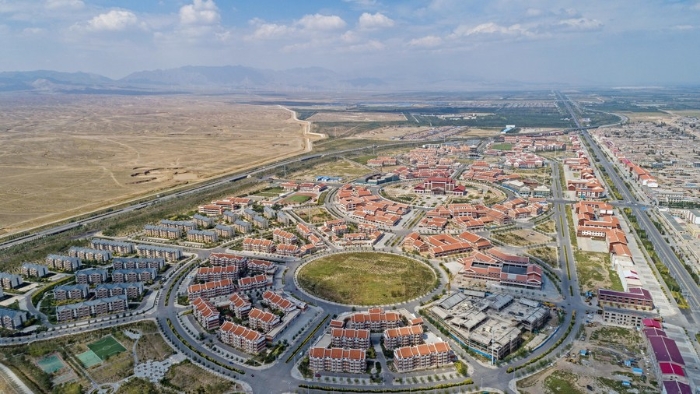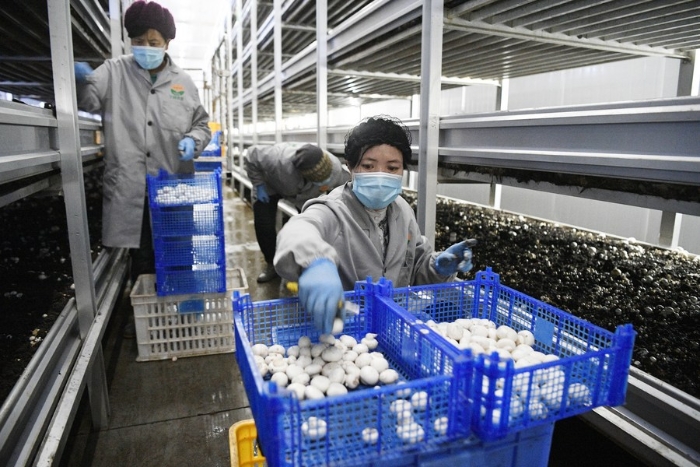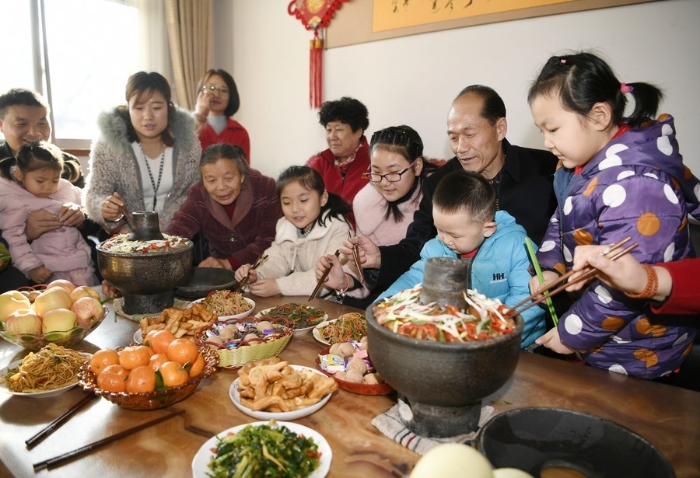How Xi helps transform northwest China's barren land
2021-11-17 11:12:58 | Source:Xinhua 2021-11-16
-- Chinese President Xi Jinping has visited Xihaigu four times over the past 25 years, which proved pivotal to the transformation of the area once deemed unfit for settlement by UN experts.
-- The poverty-alleviation measures promoted by Xi have changed the fate of countless people in Xihaigu. Over the past 40 years, around 1.23 million people from Xihaigu have been relocated to more hospitable areas.
-- "Organizing the country's eastern regions to assist western regions in poverty alleviation on such a scale and for such a long time is a feat that could only be done by our Party and nation worldwide," Xi said.
YINCHUAN, Nov. 16 (Xinhua) -- Twenty-four years ago, villager Huang Tongshuai had the opportunity of seeing the man who would change his life.
"In 1997, I was only 11. I saw a group of adults talking around a well in the village, and then I saw him," recalled Huang, who lives in an area called Xihaigu in northwest China's Ningxia Hui Autonomous Region.
Huang was talking about Chinese President Xi Jinping, also general secretary of the Communist Party of China (CPC) Central Committee and chairman of the Central Military Commission. He has visited Xihaigu four times over the past 25 years, which proved pivotal to the transformation of the area once deemed unfit for settlement by UN experts.
Xi lived and worked in Liangjiahe Village in northwest China's Shaanxi Province from 1969 to 1975. Still, when he arrived in Xihaigu, he could not believe what he saw.
"I have seen and lived in poor places, but in the 1990s, seeing that there were still poor places like this in China was shocking," Xi said.
The poverty-alleviation measures promoted by Xi have changed the fate of countless people in Xihaigu. Over the past 40 years, around 1.23 million people from Xihaigu have been relocated to more hospitable areas, and a greener and more prosperous Xihaigu began to take shape.

Aerial photo shows a view at the Minning Town in Yongning County of Yinchuan, northwest China's Ningxia Hui Autonomous Region, Sept. 3, 2019. (Xinhua/Wang Peng)
MODEL FOR PAIRING-UP SUPPORT
In 1997, Xi, then deputy Party chief of east China's Fujian Province, was in charge of a "pairing-up" poverty alleviation program between Fujian and Ningxia. Water shortages, Xi said, were the major cause of poverty in Xihaigu.
"Xi came to our village and helped us dig a small round well to pump water for irrigation. The destiny of so many people has changed," Huang recalled.
Over the past 25 years, Fujian has helped Ningxia build around 15,000 wells and cisterns, providing drinking water for 300,000 people. Local villagers call them "life-saving wells."
After becoming a member of the Standing Committee of the Political Bureau of the CPC Central Committee and Chinese vice president, Xi continued to keep an eye on the Fujian-Ningxia cooperation projects. He made inspection tours to Xihaigu in 2008.
In 2016 and 2020, Xi made his third and fourth visits as general secretary of the CPC Central Committee, Chinese president and chairman of the Central Military Commission.

Farmers pick mushrooms at a planting base in Minning Town of Yinchuan, northwest China's Ningxia Hui Autonomous Region, March 18, 2020. (Xinhua/Wang Peng)
The "Minning model," a portmanteau out of the abbreviations of Fujian and Ningxia, was crucial to the poverty alleviation approach nationwide, epitomizing a "Chinese program" that relies on cooperation and support between localities to realize shared prosperity.
"Organizing the country's eastern regions to assist western regions in poverty alleviation on such a scale and for such a long time is a feat that could only be done by our Party and nation worldwide," Xi said.
On Nov. 16, 2020, Xiji, the last poor county in Xihaigu, was removed from the poverty list, which was a historic achievement for both the region and the whole nation.
RELOCATING TO A BETTER LIFE
In his first visit to Xihaigu, Xi pushed for a relocation project, which would see whole communities from Xihaigu move from their barren, inhospitable ancestral lands to a new area at the foot of the Helan Mountain nourished by the Yellow River. Xi named it "Minning Village."
"Minning Village is now a sandy land, but it will be a fertile land in the future," Xi said then.

Xie Xingchang (2nd R) and his family enjoy a family reunion dinner in Minning Town of Yinchuan, northwest China's Ningxia Hui Autonomous Region, Jan. 24, 2020. (Xinhua/Wang Peng)
Xie Xingchang was among the first to move to the village and later became its first Party chief. "Although Minning Village was still desolate at that time, to me, it is a place of hope. It is very promising," he said.
Xi has always been very concerned about environmental protection in Ningxia, an important ecological security barrier in northwest China. During his inspection in 2008, he planted trees with Wang Youde, a respected national sand control hero.
Thanks to policies such as relocation of communities, grazing bans and the regreening of farmland, Ningxia's forest coverage rate increased from 1.5 percent in 1958 to 15.8 percent in 2020, with the forest area exceeding 820,000 hectares.
On July 19, 2016, Xi visited Yuanlong Village in Minning, which had been transformed into a bustling township of 60,000 people over the past two decades, with local life much improved.
During his fourth visit to Xihaigu in June 2020, Xi visited Hongsibu District, one of the largest settlement areas for relocated people.
Xi met Liu Kerui's family, who had moved from a mountain village. Liu handed Xi an old photo, saying "We have gotten rid of poverty!"
"You will live a better life in the future!" Xi told the Liu family.
